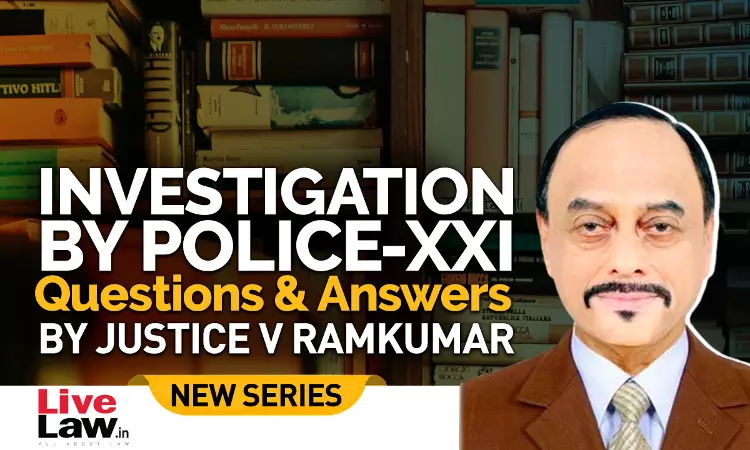Questions & Answers By Justice V. Ramkumar- Investigation By Police- PART XXI
Justice V. Ramkumar
13 Jan 2023 12:28 PM IST

Next Story
13 Jan 2023 12:28 PM IST
Q.101 Where, on receipt of a complaint alleging that commission of a cognizable offence, the Magistrate orders an investigation under Section 156 (3) Cr.P.C. is it not permissible for the SHO to refuse to register an FIR for the reason that he has no territorial jurisdiction to register an FIR and conduct investigation ?Ans. No. On receipt of a complaint for investigation under Section 156...
